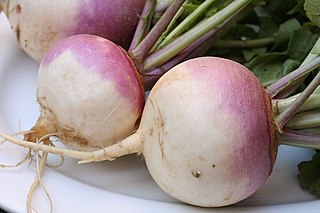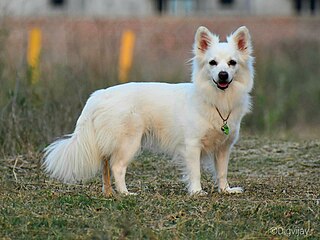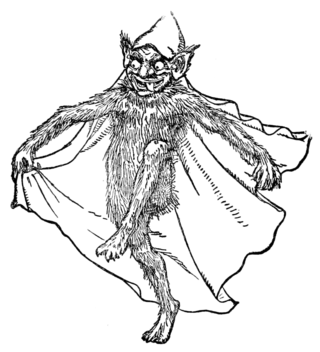Related Research Articles

A chemist is a scientist trained in the study of chemistry. Chemists study the composition of matter and its properties. Chemists carefully describe the properties they study in terms of quantities, with detail on the level of molecules and their component atoms. Chemists carefully measure substance proportions, chemical reaction rates, and other chemical properties. In Commonwealth English, pharmacists are often called chemists.

In geometry, a cube is a three-dimensional solid object bounded by six square faces, facets, or sides, with three meeting at each vertex. Viewed from a corner, it is a hexagon and its net is usually depicted as a cross.

Oregano is a species of flowering plant in the mint family Lamiaceae. It was native to the Mediterranean region, but widely naturalised elsewhere in the temperate Northern Hemisphere.
A musician is a person who composes, conducts, or performs music. According to the United States Employment Service, "musician" is a general term used to designate one who follows music as a profession. Musicians include songwriters who write both music and lyrics for songs, conductors who direct a musical performance, or performers who perform for an audience. A music performer is generally either a singer who provides vocals or an instrumentalist who plays a musical instrument. Musicians may perform on their own or as part of a group, band or orchestra. Musicians can specialize in a musical genre, though a good number of musicians play a variety of different styles depending on cultures and backgrounds. A musician who records and releases music can be known as a recording artist.

The turnip or white turnip is a root vegetable commonly grown in temperate climates worldwide for its white, fleshy taproot. Small, tender varieties are grown for human consumption, while larger varieties are grown as feed for livestock. In Northern England, Scotland, Ireland, Cornwall, Devon, and parts of Canada, the word turnip often refers to rutabaga, also known as swede, a larger, yellow root vegetable in the same genus (Brassica).

Substance abuse, also known as drug abuse, is the use of a drug in amounts or by methods that are harmful to the individual or others. It is a form of substance-related disorder. Differing definitions of drug abuse are used in public health, medical, and criminal justice contexts. In some cases, criminal or anti-social behavior occurs when the person is under the influence of a drug, and long-term personality changes in individuals may also occur. In addition to possible physical, social, and psychological harm, the use of some drugs may also lead to criminal penalties, although these vary widely depending on the local jurisdiction.
An ancestor, also known as a forefather, fore-elder, or a forebear, is a parent or (recursively) the parent of an antecedent. Ancestor is "any person from whom one is descended. In law, the person from whom an estate has been inherited."

The opisthokonts are a broad group of eukaryotes, including both the animal and fungus kingdoms. The opisthokonts, previously called the "Fungi/Metazoa group", are generally recognized as a clade. Opisthokonts together with Apusomonadida and Breviata comprise the larger clade Obazoa.

Adyghe is a Northwest Caucasian language spoken by the western subgroups of Circassians. It is spoken mainly in Russia, as well as in Turkey, Jordan, Syria and Israel, where Circassians settled after the Circassian genocide. It is closely related to the Kabardian language, though some reject the distinction between the two languages in favor of both being dialects of a unitary Circassian language.

Harpalinae is a subfamily of ground beetles that contains more than 3,000 species in 4 tribes worldwide, according to the Carabcat Database. A rarely used common name for the subfamily is the harp beetles. The Harpalinae contain the most apomorphic ground beetles, displaying a wide range of forms and behaviors. Some are, rare among ground beetles, omnivores or even herbivores.

The Sixth Doctor is an incarnation of the Doctor, the protagonist of the BBC science fiction television series Doctor Who. He is portrayed by Colin Baker. Although his televisual time on the series was comparatively brief and turbulent, Baker has continued as the Sixth Doctor in Big Finish's range of original Doctor Who audio adventures.

The Fourth Doctor is an incarnation of the Doctor, the protagonist of the BBC science fiction television series Doctor Who. He is portrayed by Tom Baker.

The Indian Spitz is a spitz dog breed belonging to the utility group. The Indian Spitz was one of the most popular dogs in India in the 1980s and 1990s when India's import rules made it difficult to import dogs of other breeds.

Aquarius (♒︎) is the eleventh astrological sign in the zodiac, originating from the constellation Aquarius. Under the tropical zodiac, the Sun is in the Aquarius sign between about January 20 and February 18. Aquarius is one of the three air signs, alongside Libra and Gemini. The ruling planets of Aquarius is Saturn, and Uranus. The opposite sign of Aquarius is Leo.

A goblin is a small, grotesque, monstrous creature that appears in the folklore of multiple European cultures. First attested in stories from the Middle Ages, they are ascribed conflicting abilities, temperaments, and appearances depending on the story and country of origin, ranging from mischievous household spirits to malicious, bestial thieves. They often have magical abilities similar to a fairy or demon, such as the ability to shapeshift.

The Erebidae are a family of moths in the superfamily Noctuoidea. The family is among the largest families of moths by species count and contains a wide variety of well-known macromoth groups. The family includes the underwings (Catocala); litter moths (Herminiinae); tiger, lichen, and wasp moths (Arctiinae); tussock moths (Lymantriinae), including the arctic woolly bear moth ; piercing moths ; micronoctuoid moths (Micronoctuini); snout moths (Hypeninae); and zales, though many of these common names can also refer to moths outside the Erebidae. Some of the erebid moths are called owlets.